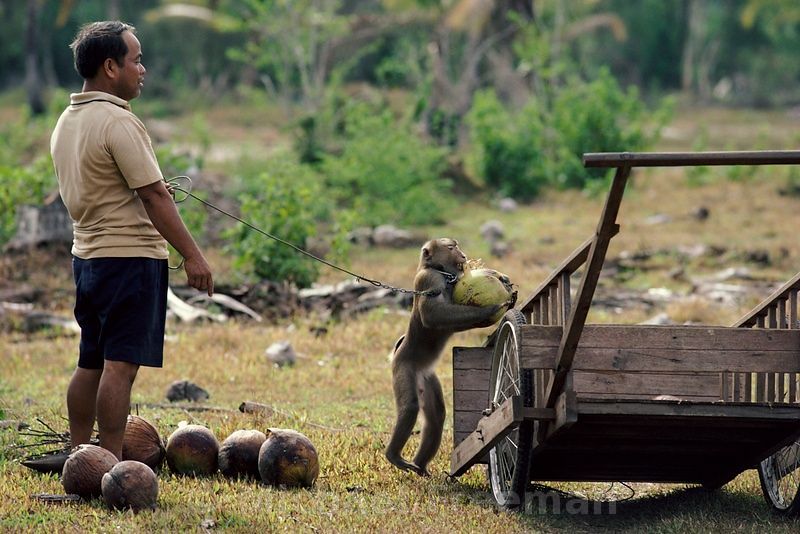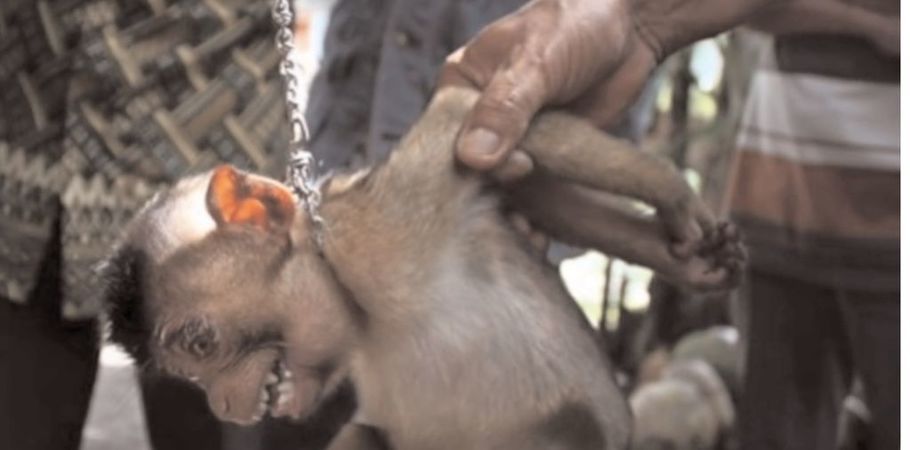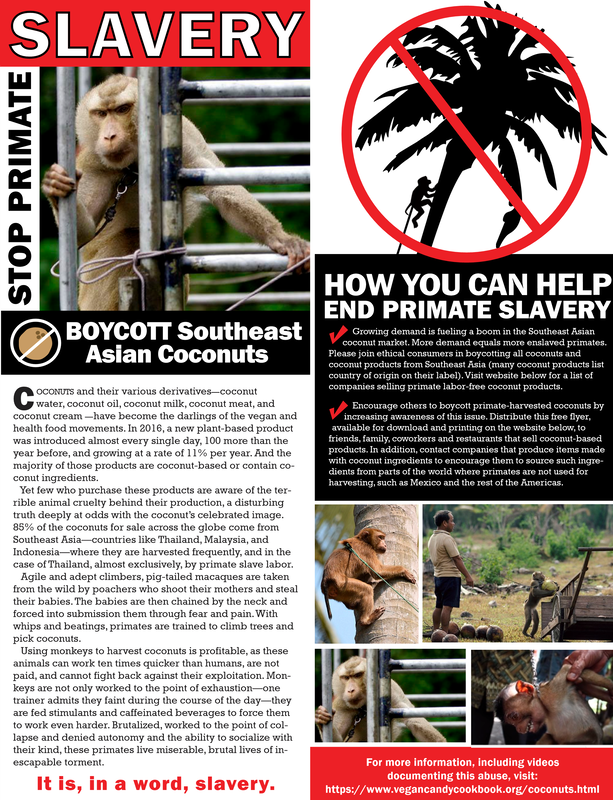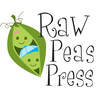THE VERY DARK SIDE OF COCONUTS
Visit Nathan's substack page to read an article about this issue, and to listen to our podcast about a study conducted onsite in Thailand that documented this abuse firsthand.
Read Assessing the Welfare of coconut-harvesting macaques in Thailand here.
HELP PRIMATES BY SPREADING THE WORD
Click here to download a flyer (front and back) to distribute to family, friends, coworkers and restaurants to educate them about the dark side of coconuts and to encourage a boycott of all Southeast Asian coconuts harvest in this cruel way. NOTE: This flyer is designed to be half-page and printed on the front and back.
NAMES FOR VARIOUS COCONUT DERIVATIVES
Some of the following ingredients are always derived from coconuts (those
with the prefix “coca”) and others may or may not be:
1,2 Octanediol
2 Phenoxyethanol
Ammonium Lauryl Sulphate
Capryl Glycol
Caprylic Acid
Caprylic Glycol
Caprylic/Capric
Caprylic/Capric Triglycerides
Caprylyl Glycol
Ceteareth-20
Cetearyl Alcohol
Cetearyl Glucoside
Ceteth-20 Phosphate
Cetyl Alcohol
Cetyl Esters
Cocamide MEA
Cocamidopropyl Betaine
Cococaprylate/Caprate
Coco Glucoside
Cocomide DEA
Coconut diethanolamide (CDFA)
Cocos nucifera (another name for coconut oil)
Coconut Oil
Decyl Glucoside
Disodium Cocamphodiprop
Disodium cocoamphodiacetate
Emusifying Wax
Glyceryl Caprylate
Glyceryl cocoate
Hexyl Laurate
Isopropyl Myristate
Laureth-3
Lauric Acid
Lauryl Glucoside
Lauryl Alcohol
Lauramide DEA
Myristic Acid
Olefin Sulfonate
Organic Sodium Cocoate
PEG - 7 Glyceryl Cocoate
PEG -100
PEG – 100 Stearate
Phenoxyethanol
Polysorbate 20
Sodium Cocoate
Sodium Coco-Sulfate
Sodium Cocoyl Isethionate
Sodium Cocoyl Glutamate
Sucrose Stearate
Sodium Lauroamphoacetate
Sodium Laureth Sulfate
Sodium Lauroyl Sarcosinat
Sodium Lauryl Sulfate
Sodium Stearate
Sorbitan Stearate
Stearyl Alcohol
Stearalkonium chloride
Sucrose Cocoate
TEA-Laureth Sulfate
Vegetable Cetearyl Glucose
Vegetable Glycerine
with the prefix “coca”) and others may or may not be:
1,2 Octanediol
2 Phenoxyethanol
Ammonium Lauryl Sulphate
Capryl Glycol
Caprylic Acid
Caprylic Glycol
Caprylic/Capric
Caprylic/Capric Triglycerides
Caprylyl Glycol
Ceteareth-20
Cetearyl Alcohol
Cetearyl Glucoside
Ceteth-20 Phosphate
Cetyl Alcohol
Cetyl Esters
Cocamide MEA
Cocamidopropyl Betaine
Cococaprylate/Caprate
Coco Glucoside
Cocomide DEA
Coconut diethanolamide (CDFA)
Cocos nucifera (another name for coconut oil)
Coconut Oil
Decyl Glucoside
Disodium Cocamphodiprop
Disodium cocoamphodiacetate
Emusifying Wax
Glyceryl Caprylate
Glyceryl cocoate
Hexyl Laurate
Isopropyl Myristate
Laureth-3
Lauric Acid
Lauryl Glucoside
Lauryl Alcohol
Lauramide DEA
Myristic Acid
Olefin Sulfonate
Organic Sodium Cocoate
PEG - 7 Glyceryl Cocoate
PEG -100
PEG – 100 Stearate
Phenoxyethanol
Polysorbate 20
Sodium Cocoate
Sodium Coco-Sulfate
Sodium Cocoyl Isethionate
Sodium Cocoyl Glutamate
Sucrose Stearate
Sodium Lauroamphoacetate
Sodium Laureth Sulfate
Sodium Lauroyl Sarcosinat
Sodium Lauryl Sulfate
Sodium Stearate
Sorbitan Stearate
Stearyl Alcohol
Stearalkonium chloride
Sucrose Cocoate
TEA-Laureth Sulfate
Vegetable Cetearyl Glucose
Vegetable Glycerine
purchasE primatE labor-frEE cocoNut products
Click on links below to purchase coconut products grown without the use of primate slave labor:
Coconut Milk
Coconut Cream
Coconut oil
Shredded coconut
Coconut Butter (also called coconut manna and mantequilla de coco: note that this is not the same as coconut cream).
Note that this cookbook contains a recipe for how to make delicious, homemade coconut milk from scratch using using shredded coconut.
Coconut Milk
Coconut Cream
Coconut oil
Shredded coconut
Coconut Butter (also called coconut manna and mantequilla de coco: note that this is not the same as coconut cream).
Note that this cookbook contains a recipe for how to make delicious, homemade coconut milk from scratch using using shredded coconut.








